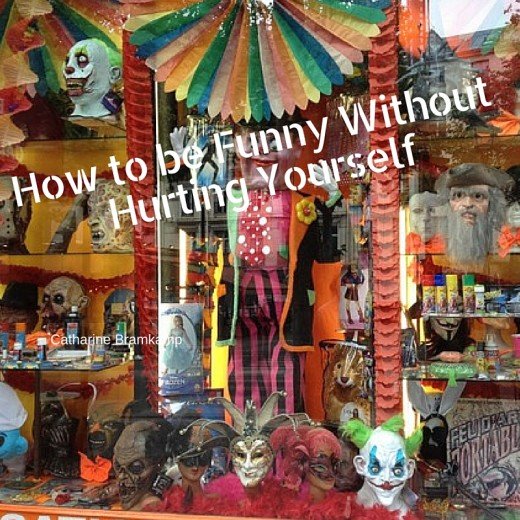The Magic of Journaling by Catharine Bramkamp
 Let’s welcome back monthly columnist Catharine Bramkamp as she shares with us about “The Magic of Journaling.”
Let’s welcome back monthly columnist Catharine Bramkamp as she shares with us about “The Magic of Journaling.”
***
We are writers. We write. Good, bad, ugly and sometimes completely indifferent work and words all scribbled down in the dark of night, or dawn. We often can’t help but write. And we often wonder if we are just wasting time.
Turns out we aren’t.
Journaling, even if the work doesn’t lead to the next great novel, will, at the very least, promote better health and clearer thinking.
Journaling is good for us.
Like coffee. Like red wine. It’s enough to make you believe in a benevolent god.
The science on the health benefits of journaling is not conclusive because reports of well being and on shared and private writing are self-reported, as well as difficult to definitively measure.
But according to programs like Journal on Line, consistent journaling can:
• Boost thinking ability
• Increase working memory
• Reduce pain, tension, and fatigue
• Enhance mood and sleep quality
• Positively influence immune system function
• Help wounds heal more quickly
Sign me up!
But what exactly is journaling and how does a writer approach it?
Journaling is Julia Cameron’s famous morning pages, which are similar to Natalie Goldberg’s ten-minute writes, which is the same as unconscious or spontaneous writing, which is the same as bitching on the page to avoid bitching to loved ones.
But it doesn’t always need to be just about spilling out all your frustrations and angst until the pen runs out of ink. Journaling can help with your creative projects.
Do you want to get better at an activity?
Journal about it.
Here’s a suggested exercise:
- You can journal about how that will feel
- Why you want to do it, and
- What you will do today to achieve your goals.
Want your muse to show up on time?
Sit down and start writing in your journal.
You know journaling works so I’m not telling you anything new. But I do encourage you to take another look at the activity and possibilities of journaling.
An organized journal is an effective journal.
I have about 50 sections in my main journal. Sections include projects, clients and a monthly journal space (so that’s 12 sections right there.)
The advantage of sections is they offer an easy way to capture and organize what start out as random thoughts.
When I write up a potential blog, I place it into the blog section. If I have an idea for a 2018 holiday gift, or a note to NEVER give that gift again, I place that idea into that section.
If you write by hand, file folders would work beautifully.
Want to work on a book?
Create a journal section for that book. Not only make notes on plot points or characters, but it’s also a place to move strong emotions, initially blurted out in the general notes, into the book notes.
While you get healthy by blurting out all your bad feelings, those raw emotions will enhance a future novel.
Gratitude journals are popular, but you don’t need a separate one. Keep a tab or section in your main journal. It keeps things simple as well as serve as a reminder to jot down what you are thankful for.
So many ways to keep a journal…
You can tap into online programs, buy a fresh notebook, or manage multiple projects and ideas using programs like Scrivener or One Note. You can type away at a single document scrolling through the year and ideas as they come to you.
What is important is to continue writing.
Some of the work won’t be worthwhile. But so much of what we spill out will benefit our future books and projects and as it turns out, benefits our health and wellbeing.
Order a coffee at the cafe, open your journal and prepare to be healthier this year. We don’t often get a win/win. But journaling comes pretty close.
***
Share the love!
 Tweet: Do you want to get better at an activity? Journal about it. Here’s how…
Tweet: Do you want to get better at an activity? Journal about it. Here’s how…
You can edit the tweets before posting them.
***
ABOUT THE AUTHOR
 Catharine Bramkamp is the co-producer of Newbie Writers Podcast that focuses on newer writers and their concerns. She is a successful writing coach, Chief Storytelling Officer, and author of a dozen books including the Real Estate Diva Mysteries series, and The Future Girls series. She holds two degrees in English and is an adjunct university professor. After fracturing her wrist, she has figured out there is very little she is able to do with one hand tied behind her back.
Catharine Bramkamp is the co-producer of Newbie Writers Podcast that focuses on newer writers and their concerns. She is a successful writing coach, Chief Storytelling Officer, and author of a dozen books including the Real Estate Diva Mysteries series, and The Future Girls series. She holds two degrees in English and is an adjunct university professor. After fracturing her wrist, she has figured out there is very little she is able to do with one hand tied behind her back.







I love to journal, but it is often a lot of venting, though it makes me feel better. 😉 I never though about it as a way to think “out loud” about ideas. The suggestion to have sections to a journal is right up my alley and I’m going to implement that immediately.